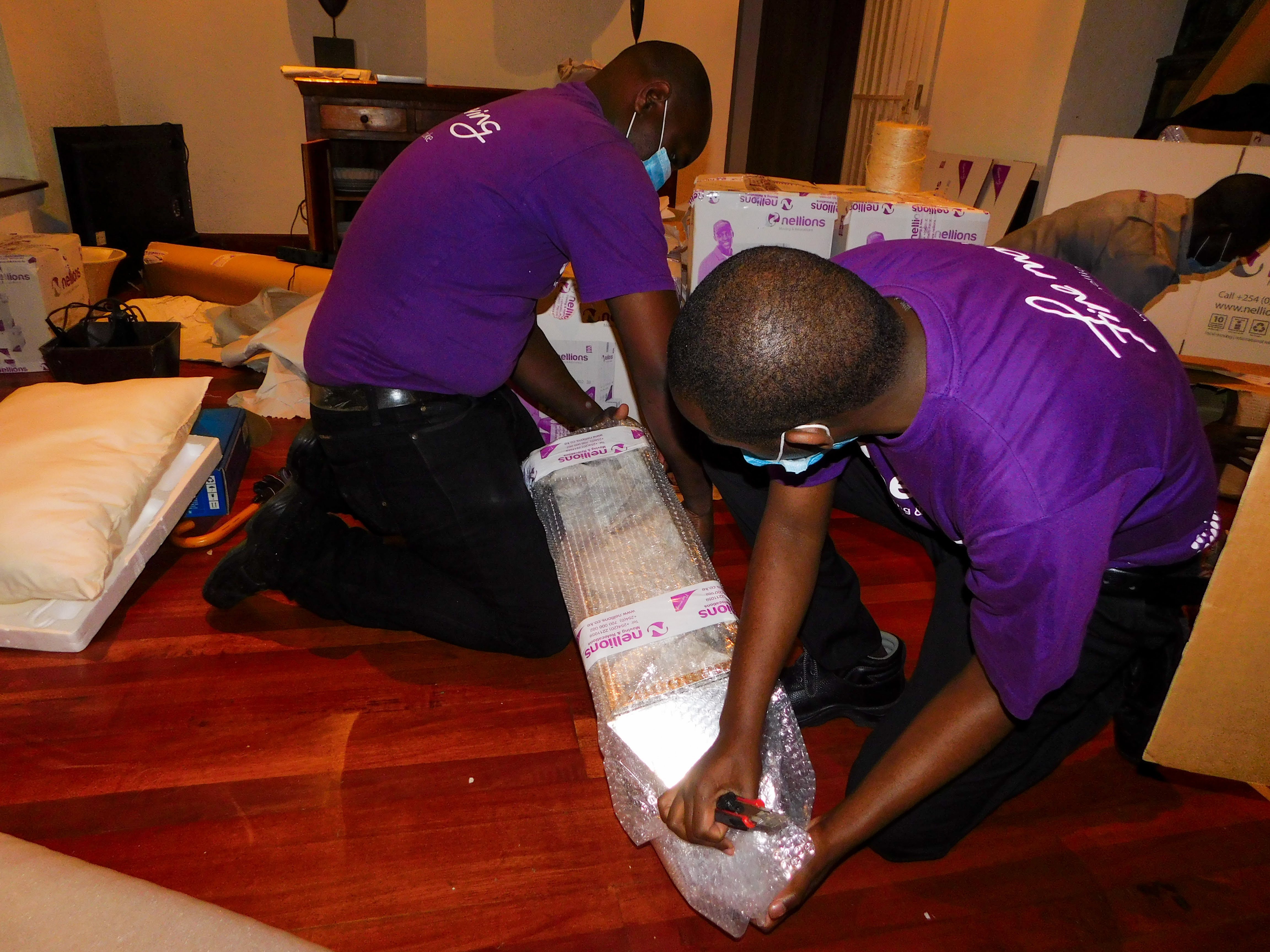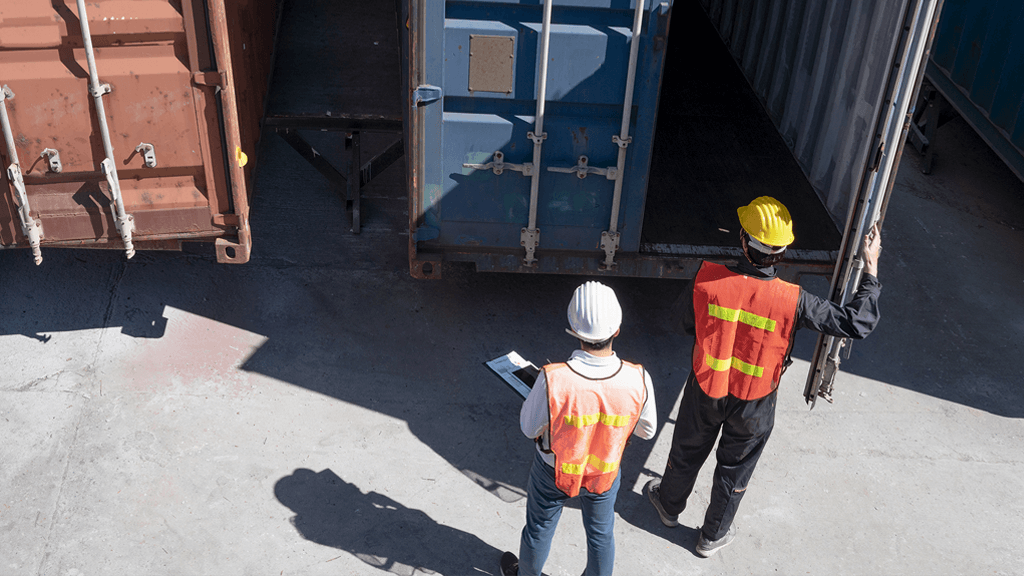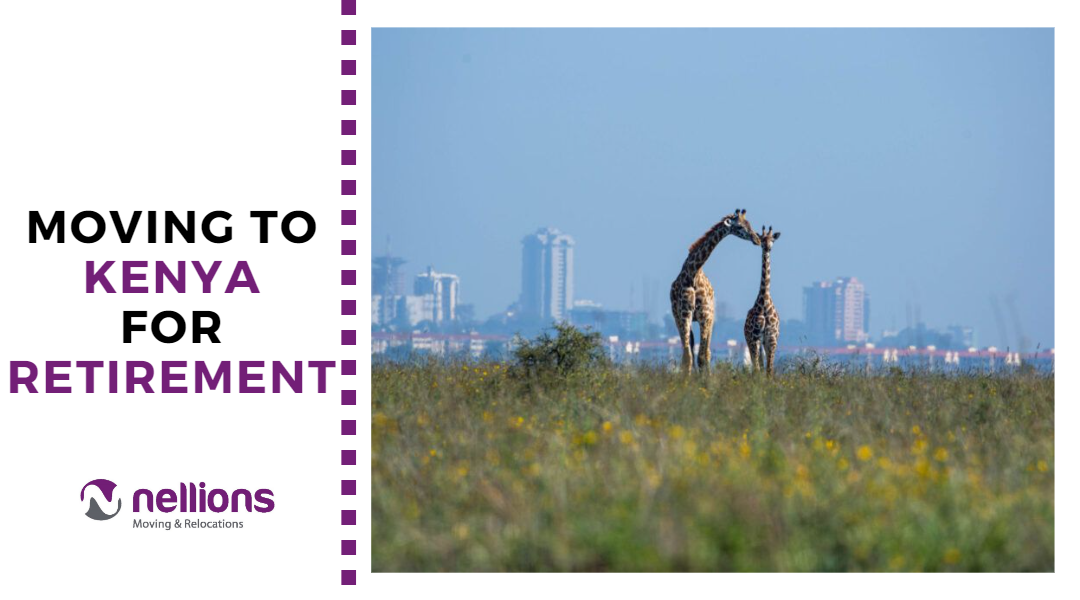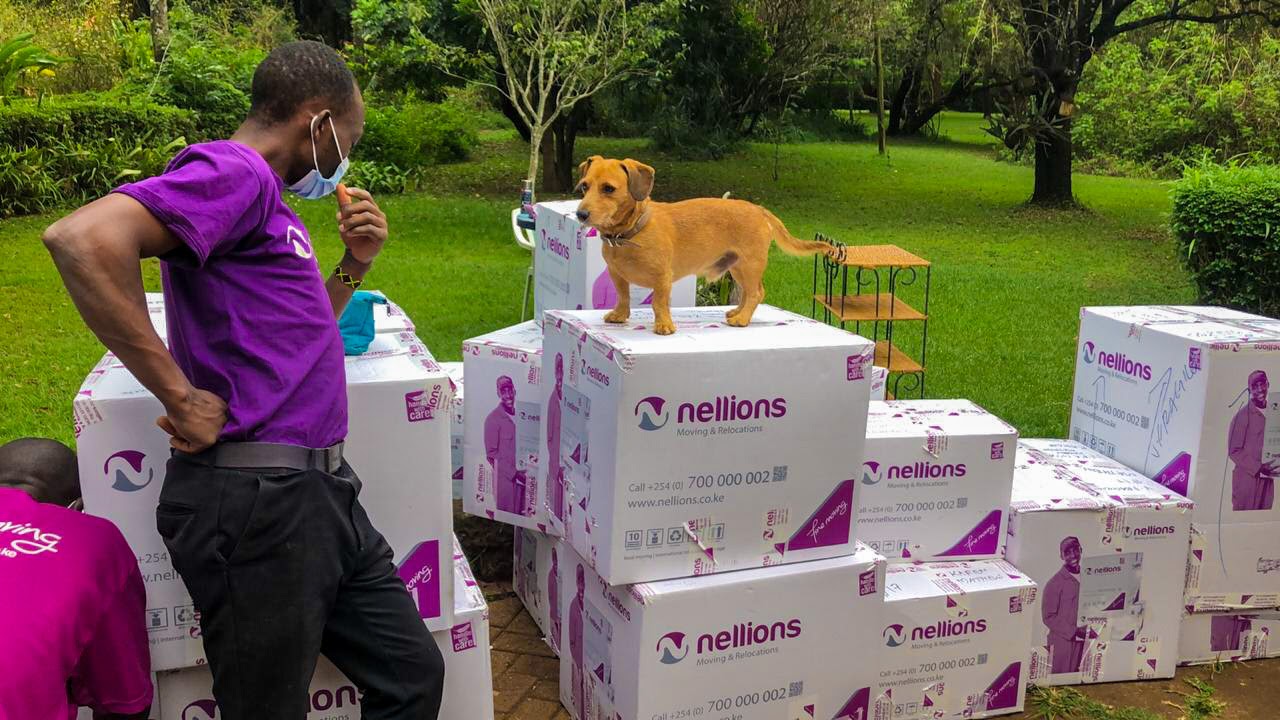Are you ready for an adventure of a lifetime? Imagine waking up to the symphony of exotic birdsong, feeling the warm African sun kiss your skin, and immersing yourself in a vibrant culture teeming with rich traditions and breathtaking landscapes.
From the awe-inspiring savannahs of the Maasai Mara to the bustling streets of Nairobi, Kenya offers a tapestry of experiences that will ignite your sense of exploration and leave you forever changed. Whether you dream of embarking on thrilling safaris, immersing yourself in vibrant local communities, or simply savoring the breathtaking beauty of its diverse landscapes, moving to Kenya is the ultimate retirement dream come true.
This blog is your passport to discovering the endless possibilities in this captivating nation. We will discuss the practical aspects of relocating to Kenya, including visa or permit requirements, all the expenses to prepare for, and how to ship your items to Kenya.

Retirees Need a Class K Permit to Move to Kenya
One essential requirement for moving to Kenya for retirement is obtaining a retirement permit, also known as the “Class K” residence permit. The retirement permit allows you to reside in Kenya for an extended period and enjoy your retirement in the country. Here is what you need to know about the retirement permit:
- Eligibility: To be eligible for a retirement permit in Kenya, you must be at least 35 or older. This requirement ensures that the permit is specifically designed for retirees seeking to spend their golden years in Kenya.
- Financial Requirement: One crucial aspect of the retirement permit application is demonstrating your financial capability. You need to show that you have a reliable source of income, such as a pension, investments, or any other means that can sustain your lifestyle in Kenya without needing employment or engaging in income-generating activities within the country. The minimum requirement is US$24,000 annually.
- Application Process: The retirement permit application process involves submitting the necessary documents and fulfilling the requirements set by the Kenyan immigration authorities. These requirements may include proof of age, financial capability, and background checks.
- Documentation: Prepare the required documents for your retirement permit application, including a completed application form, a valid passport with a minimum of six months validity, two passport-sized photographs, proof of income, a police clearance certificate, a copy of your CV, documentation of a regular source of income a certified copy of your highest degree/academic certificate and a medical report.
- Permit Costs: The cost of obtaining a retirement permit in Kenya can vary depending on various factors. However, Kenya immigration charges a processing fee of Ksh 10,000 (non-refundable) and a renewal fee of Ksh 100,000 per year. It is essential to note that the fees and charges are subject to change, so it is advisable to verify the latest information with the Kenyan immigration authorities or seek professional advice
- Renewal: The retirement permit is typically renewable every year.
- Application Processing Time: The processing time for retirement permit applications can vary. However, it generally takes immigration to process the application between two to three months. Submitting your application well in advance is advisable to allow for any potential delays or administrative procedures. Contact the Kenyan immigration authorities or consult with an immigration lawyer for guidance on the expected processing time.
- Professional Assistance: Navigating the retirement permit application process can be complex, and seeking professional assistance is advisable. Immigration lawyers or consultants experienced in Kenyan immigration laws can provide guidance, review your application, and ensure you fulfill all the requirements.
Applying for Residency in Kenya For Retirement
Applying for residency in Kenya for retirement is possible. However, it is not the same as applying for retirement. To become a resident in Kenya, you typically need to go through a process of lawful residence for a specific period of time. According to the Constitution of Kenya, eligible foreign applicants can apply for citizenship by registration after residing in the country for at least seven years. The criteria for eligibility also include being married to a Kenyan citizen for at least seven years.
Retirees Moving to Kenya Can Move With Their Used Household Goods and Personal Effects
If you are a retiree planning to move to Kenya, you can bring your used household goods and personal effects. Kenya allows the importation of used household items and personal belongings for individuals relocating to the country. This means you can bring furniture, appliances, clothing, personal belongings, and other necessary items for your retirement. However, you must meet certain requirements for this to be possible.

You Need a Personal Identification Number To Import Household Items
To import your used household goods and personal effects when moving to Kenya, it is important to note that you will need a Personal Identification Number (PIN). The PIN is a unique identification number issued by the Kenya Revenue Authority (KRA) and is required for customs clearance.
The PIN serves as a tax reference and helps ensure that the importation of your household items complies with customs regulations. It is an essential requirement for individuals importing goods into Kenya, including used household goods and personal effects. To obtain a PIN, you must complete an application with KRA online.
You Need a Customs Import Entry To Import Household Items
To import your household items into Kenya, it is necessary to have an import entry declaration with Kenya customs.
This declaration is submitted electronically by your clearing agent to Customs on your behalf. The entries are usuallly lodged against the manifest registered electronically by the shipping or airline agents. To support the declarations, certain essential documents must also be provided. These include packaging lists, commercial invoices, the Bill of Lading or Airway Bill, licenses or permits (if applicable), and exemption or remission authority (if applicable).
Customs Must Inspect Your Shipment
It’s important to note that all shipments coming into Kenya are subject to inspection by customs authorities. Customs inspections are a standard procedure designed to verify the accuracy of declared items, ensure compliance with customs regulations, and maintain the country’s security.
During customs inspection, officials will examine your shipment to assess its contents. This may involve physically inspecting the packages, opening containers, or using X-ray machines to scan the items. The inspection aims to confirm that the declared items match the documentation provided and to detect prohibited or restricted goods.

Some Items Will Be Subjected To a Radioactive Analysis
If you plan to bring cosmetics, toiletries, perfumes, alcohol, or foodstuffs to Kenya, it is advisable to prepare for the possibility of radioactive analysis. This analysis is carried out to ensure compliance with safety and health regulations and maintain the citizens’ well-being. The cost of the radioactive analysis is Kshs 3,000 per sample per item. This fee covers the analysis expenses and is an additional cost to consider when importing the aforementioned items.
To avoid inconveniences, it is highly recommended not to pack these items in the same container as your used personal effects and household items, as the latter are considered non-dutiable.
Expect to Pay a 2% Railway Development Levy (RDL) For Your Shipment
This levy applies to all non-diplomatic shipments and is calculated at a rate of 2% of the shipment’s value. To determine the amount payable for the RDL, customs authorities assess the declared value of your shipment based on the declared cost of goods, insurance and Freight charges. They then calculate 2% of this value, which represents the levy amount that you will be required to pay.
Moving With Your Vehicle is Possible
If you are considering moving to Kenya for retirement and wish to bring your vehicle, it is possible. However, there are certain documents that you will need to provide to import your vehicle successfully. These include:
- Passport copy- original might be required
- Copy of the retirement permit
- Import declaration form (IDF)
- Certificate of Roadworthiness (COR) issued by Quality Inspection Services Japan (QISJ). If you are relocating from countries where QISJ is not present, local charges for preparing the certificate of roadworthiness at 0.6% of the car’s value or USD 265, whichever is higher, will apply.
- Personal identification number (PIN) certificate
- Original certificate of registration/logbook of the vehicle in English
- Certificate of ownership, also known as deregistration certificate.
- Foreigners ID, also known as Alien Card, will be needed for vehicle registration with National Transport and Safety Authority (NTSA)
Nevertheless, left-hand drive vehicles are not allowed to be imported into Kenya. The country follows a right-hand drive system, meaning vehicles with the steering wheel on the left side are prohibited from importation. Additionally, vehicles older than 8 years from the year of manufacture are not eligible for importation into Kenya.

Expect to Pay Motor Vehicle Processing Fees
When planning to import a motor vehicle to Kenya as part of your retirement move, it’s important to consider the applicable motor vehicle processing fees. Currently, the fee stands at USD 100 per motor vehicle.
You Can Import Your Vehicle Duty-Free
While you can import your vehicle duty-free when moving to Kenya for retirement, you must prove that you have owned it for at least 12 months before the importation. Certificate of Ownership will be used to prove this. However, if you can’t prove that the vehicle is yours, approximately 66.5% of taxes, duties and levies will be applied on the vehicle’s value as per the customs system (CRSP) value. This includes import duty, excise duty, value-added tax (VAT), and other applicable charges.
Additionally, the Kenyan Bureau of Standards (KEBS) will impose a penalty if the Certificate of Roadworthiness is unavailable during the vehicle importation process. This penalty amounts to 0.6% of the vehicle’s cost, insurance, and freight (CIF) value or USD. 265 if you are coming from a country where QISJ has no presence. In the event that QISJ is present in the country of origin and you do not have the certificate of roadworthiness, then a penalty of up to 30% of the vehicle value will apply.
You Can Move With Your Pets
When moving to Kenya for retirement, bringing your beloved pets with you is possible. However, there are certain requirements and documents that need to be fulfilled to ensure a smooth importation process for your furry companions. The following documents are required for importing pets into Kenya:
- Vaccination record: This should include the rabies vaccination certificate for your pet. It’s important to note that the rabies vaccination must be administered within 12 months and at least 1 month prior to the importation.
- Veterinary health certificate: A certificate issued by a licensed veterinarian is required to certify that your pet is in good health and free from any contagious diseases. This certificate proves that your pet is fit to travel and enter Kenya.
- Import permit: An import permit is necessary to bring your pets into Kenya. The import permit application should be made before the importation because it typically takes around 30 days to obtain the permit.
As with any importation, there are fees associated with processing the import permit for the pet. Furthermore, upon arrival, you will be required to pay duties on the pet. The duties depend on the breed, size, and customs value

Some Items Have Limitations While Others Require Special Permits
Certain items may require special permits in order to be imported legally. They may, therefore, also be subject to duties. These include::
- Weapons, including firearms: Importing firearms into Kenya requires a firearm certificate issued by the Kenyan Firearms Office.
- Wild flora and fauna: Importing plants and certain wildlife species into Kenya requires an import permit from the Convention on International Trade in Endangered Species of Wild Fauna and Flora CITES Kenya
- Birds and their products: Importing birds from countries affected by bird flu requires a sanitary import permit issued by the Director of Veterinary Services.
Additionally, there are limitations and allowances for certain items that may qualify for free importation by individuals who are 186 years and older duty free- anything beyond this will incur taxes. These allowances include:
- Up to 200 cigarettes
- Up to 50 cigars
- Up to 1/2 pound of tobacco
- One bottle of alcoholic beverage
- Up to 1 pint of perfume
Kenya Has a List of Prohibited Items
Even though you may consider some items as your personal belongings, it’s essential to be aware of Kenya’s specific regulations and restrictions when importing certain items. While some of these items may hold sentimental or personal value to you, it’s crucial to respect the laws of the country you are moving to. This will help you avoid legal complications or delays during customs clearance.
Kenya has a list of prohibited items that cannot be imported under any circumstances. These items include:
- Precious metals and stones
- Game trophies
- Pornographic or obscene literature
- Animal traps
- Drugs
- Fruit
- Explosives
- Counterfeit currency
- Gambling machines
- Imitation firearms
The Process of moving to Kenya for Retirement
- Process your Class K permit.
- Once the permit is issued, you can process your (non-resident) KRA PIN
- Obtain a foreigner ID – also known as an Alien Card. Not necessary when importing personal effects, but is required for vehicle importation.
A competent immigration lawyer can easily take care of these first 3 steps.
- Once Class K permit and KRA PIN are ready, you can import your household goods and personal effects within 90 days.
- Submit your final packing list, valued inventory and bill of lading for your consignment to your Clearing Agent
- Clearing Agent files an Import Declaration Form (IDF) with Kenyan Customs using iCMS
- Clearing Agent applies for exemption and obtains exemption code
- Shipping line manifests cargo: 3-5 days before arrival of consignment
- Clearing Agent registers a Customs Entry through iCMS
- Pay for Railway Development Levy (RDL) and Miscellaneous Levy (MSF)
- Verification of goods by Customs, KEPHIS, & KEBS.
- Cargo is released by Cusoms
- At the time of verification, Customs Agent lodges a Delivery Order with the shipping line – mapped to Kenya Port Authorities (KPA)’s systems – and pays relevant fees (container cleaning, destination terminal handling charges, International Ship and Port Facility (ISPS))
- Cargo is released by KPA, allowing you to leave the terminal.
Consider Hiring a Reputable Moving Company
When moving to Kenya for retirement, it is highly beneficial to consider hiring a reputable moving company. Such a decision can significantly ease the process and ensure a smooth transition to your new home. Professional moving companies possess the expertise, experience, and resources to handle all aspects of your relocation, from packing and logistics to customs clearance.
Nellions stands out as a top moving company for several reasons. With our extensive experience and specialized knowledge in international relocations, including moving individuals to Kenya, we have a proven track record of providing excellent service. We understand the specific requirements and regulations associated with moving to Kenya and can guide you through the entire process with professionalism and efficiency. By choosing Nellions, you can have peace of mind knowing that your retirement move to Kenya will be handled by experts in the field, ensuring a hassle-free and successful relocation.
Contact us today by calling +254 700 000 002 or emailing us at move@nellions.co.ke.









